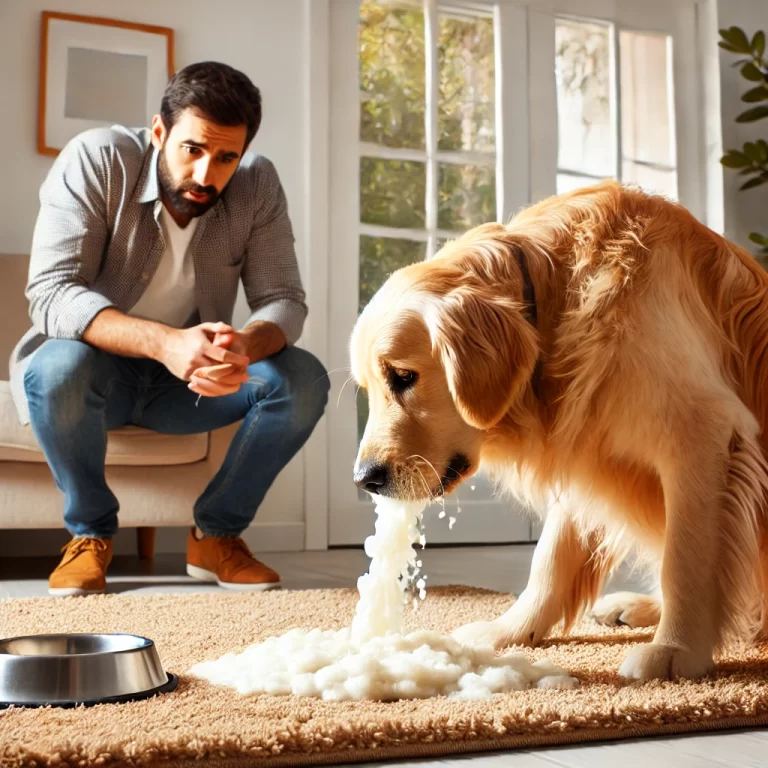Can Dogs Have Arugula? Nutritional Benefits, Risks & Feeding Tips
Table of Contents
- Introduction
- What Is Arugula?
- Is Arugula Safe for Dogs?
- Nutritional Benefits of Arugula for Dogs
- How to Feed Arugula to Dogs
- Potential Risks and Side Effects
- Recommended Serving Size
- Healthy Alternatives to Arugula
- Frequently Asked Questions
- Conclusion
Introduction
Pet owners are increasingly interested in adding fresh vegetables to their dog’s diet. One leafy green that sparks curiosity is arugula. But can dogs have arugula safely? This article explores the benefits, risks, and best practices for feeding arugula to your canine companion.
What Is Arugula?
Arugula, also known as rocket or rucola, is a peppery, leafy green vegetable popular in salads and Mediterranean cuisine. It’s part of the cruciferous vegetable family, which includes broccoli, kale, and Brussels sprouts, and is known for its antioxidant-rich profile.
Is Arugula Safe for Dogs?
Yes, arugula is generally safe for dogs when given in moderation. It is not toxic to dogs and can be a nutritious, low-calorie treat. However, because it has a strong flavor and contains certain natural compounds, it should be introduced gradually and served appropriately.
Nutritional Benefits of Arugula for Dogs
Arugula offers several health benefits that can support your dog’s well-being:
- Vitamins A, C, and K: Support immune health, vision, and blood clotting.
- Calcium and Potassium: Promote strong bones and healthy nerve function.
- Antioxidants: Help fight inflammation and support cellular health.
- Low in Calories: Great as a healthy snack without contributing to weight gain.
How to Feed Arugula to Dogs
There are a few safe ways to incorporate arugula into your dog’s diet:
- Chopped Fresh: Wash and chop arugula into small pieces and mix into your dog’s food.
- Lightly Steamed: Steaming arugula softens it and may be easier on your dog’s digestion.
- Mixed with Other Veggies: Combine with dog-safe vegetables like carrots or green beans.
Potential Risks and Side Effects
Although arugula is non-toxic, some dogs may experience side effects:
- Digestive Upset: Too much arugula may cause gas or diarrhea due to its fiber content.
- Strong Flavor: The peppery taste might be off-putting to picky eaters.
- Oxalates: In large amounts, oxalates in arugula can affect calcium absorption or contribute to kidney stones in sensitive dogs.
Recommended Serving Size
Start with a small portion—about one or two leaves for small dogs, and a small handful for larger breeds. Observe your dog for any adverse reactions before offering more. Limit arugula to occasional treats and avoid making it a daily staple unless approved by your veterinarian.
Healthy Alternatives to Arugula
If your dog doesn’t enjoy arugula or has a sensitive stomach, consider these safe leafy greens:
- Spinach: Nutrient-rich but also contains oxalates—serve sparingly.
- Kale: Packed with vitamins and antioxidants.
- Romaine Lettuce: Mild, crunchy, and easy to digest.
Frequently Asked Questions
Can puppies eat arugula?
Yes, but only in small, cooked amounts and after consulting a vet. Puppies have more sensitive stomachs and specific nutritional needs.
Can arugula be harmful to dogs?
In moderation, arugula is safe. Problems arise when it’s overfed or served with harmful ingredients like garlic or onions.
Can dogs eat arugula every day?
It’s best to offer arugula occasionally as a treat. Daily feeding isn’t necessary and may lead to nutrient imbalances.
Conclusion
So, can dogs have arugula? Absolutely—when offered in moderation and prepared correctly, arugula can be a healthy and tasty addition to your dog’s diet. It’s rich in nutrients and antioxidants but should always be served plain, without dressings or seasoning. As with any new food, consult your veterinarian before adding arugula to your dog’s regular routine to ensure it’s a safe fit for their unique dietary needs.







